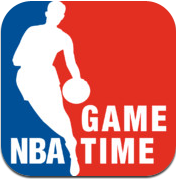Before talking about the pros and cons of apps I would first likely say that I do not own a smart phone. My $99 Nokia brick with only dialing and texting capability has not offered me a personal understanding of smartphone apps. I do however own an iPad so I do at least understand what an app is.
So an app.
Definition of app
noun
Computing
a self-contained program or piece of software designed to fulfil a particular purpose; an application, especially as downloaded by a user to a mobile device: apparently there are these new apps that will actually read your emails to you
When trawling the Internet trying to find the pros and cons of smartphone apps I found the same common issues that I have with my iPad.
Pros
- Able in touch and up to date with all the social networking sites such as Facebook, Twitter and email. Not just texting and dialing.
- Phones are no longer just a phone they can turn into a GPS navigator, a recipe book or even a yoga instructor.
- If you are not in the room it can make you feel connected either through a Skype chat.
- TV on your phone- most channels whether it be Foxtel, ABC or BBC have apps where you can watch missed programs. There are even specific apps such as NBA game time where you can watch every game live or at a later date (this is one of my favourite).
Cons
- You are constantly distracted by your phone- whether be from the latest Facebook or simply just having the option to mess around on your phone rather than doing your work.
- Everything needs to be constantly updated including your phone making it an expensive thing to stay on top of.
- Difficult to separate different aspects of your life when you can be at home but are still constantly connected to university or work.
So how did the apps phenomenon occur?
Apple leaded the trend for the apps with the release of the iPhone and iPod Touch they launched the first app store 2008. In the first weekend alone ten million applications were downloaded of which 25% were free. Blackberry leads the Android market soon after with only 50 apps available. By the end of 2008 the Apple Apps Store has 10,000 available. Since then Apple has been leading the app market race in terms of both apps downloaded and apps available. Other makers such as Nokia launched their own App stores but none other than Samsung have been able to rival Apple.
Recommended Apps
NBA Game Time IMDB
Huffington Post Gmail
Paper Toss Angry Birds














